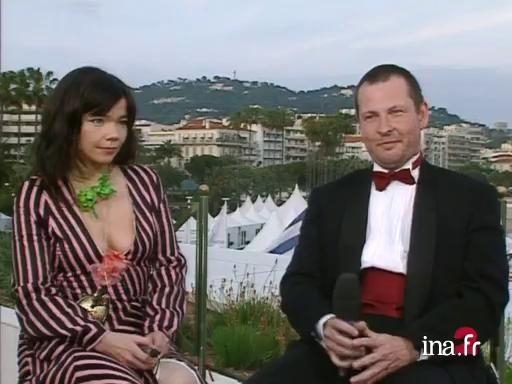Lars von Trier winning the Palme d'Or for Dancer in the Dark

Information
A linkup from Cannes with Lars Von Trier who has just won the Palme d'Or at Cannes for his film Dancer in the Dark and Björk who has won the best actress award.
Context
The film Dancer in the Dark, released in 2000, was the result of a meeting of two explosive talents.
The Danish director Lars von Trier, born in 1956, first made his name by his provocative variations on the genres of film noir (Element of Crime, 1984), thriller (Europa, 1991), television series (The Kingdom, 1994) and mystical melodrama (Breaking the Waves, 1996) before offering The Idiots (1998) respecting the Dogma set out in 1995 with Thomas Vinterberg: and attempts to rid cinema of all aesthetic ambitions by trying to capture raw reality.
The second unusual element was the Icelandic singer Bjork, electro-pop diva, who was the main actress and composer for Dancer in the Dark. A melodrama, musical comedy and social commentary all at once, the film, far from the predetermined principles of Dogma would touch hearts and triumph in Cannes. The story of Selma, and nearly blind immigrant unjustly accused of murder would be a bone of contention between the actress and her director. The disagreements between the technician von Trier and his singer at their wits' end would nevertheless create an exceptional film.


